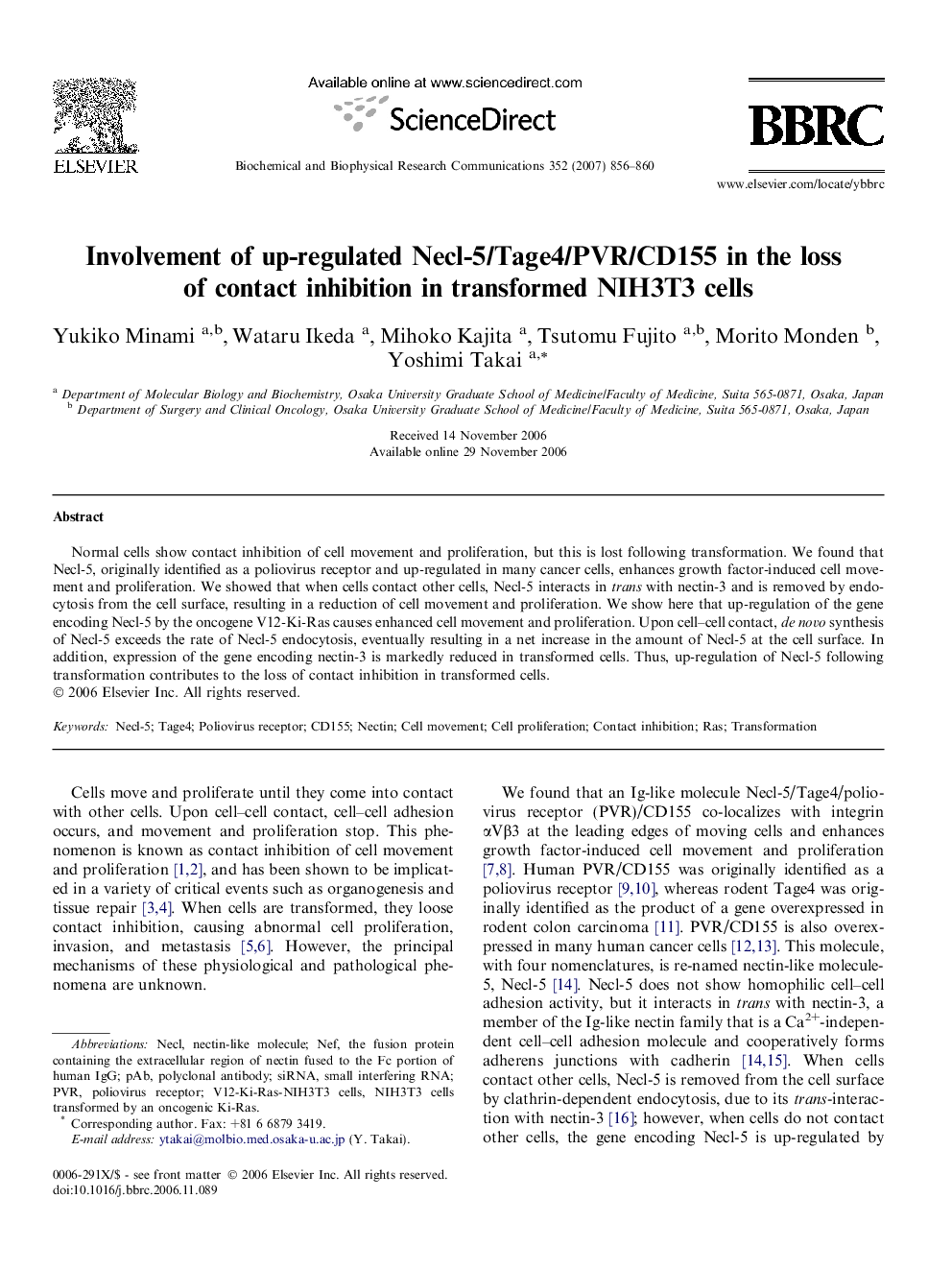| Article ID | Journal | Published Year | Pages | File Type |
|---|---|---|---|---|
| 1939739 | Biochemical and Biophysical Research Communications | 2007 | 5 Pages |
Normal cells show contact inhibition of cell movement and proliferation, but this is lost following transformation. We found that Necl-5, originally identified as a poliovirus receptor and up-regulated in many cancer cells, enhances growth factor-induced cell movement and proliferation. We showed that when cells contact other cells, Necl-5 interacts in trans with nectin-3 and is removed by endocytosis from the cell surface, resulting in a reduction of cell movement and proliferation. We show here that up-regulation of the gene encoding Necl-5 by the oncogene V12-Ki-Ras causes enhanced cell movement and proliferation. Upon cell–cell contact, de novo synthesis of Necl-5 exceeds the rate of Necl-5 endocytosis, eventually resulting in a net increase in the amount of Necl-5 at the cell surface. In addition, expression of the gene encoding nectin-3 is markedly reduced in transformed cells. Thus, up-regulation of Necl-5 following transformation contributes to the loss of contact inhibition in transformed cells.
